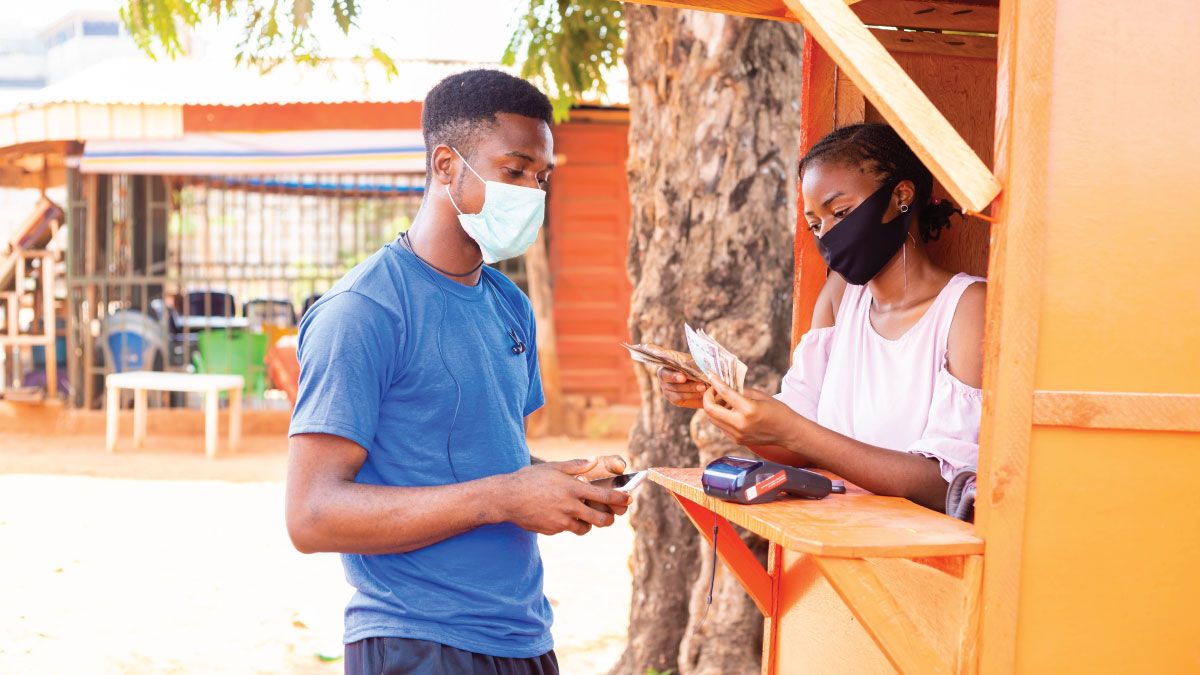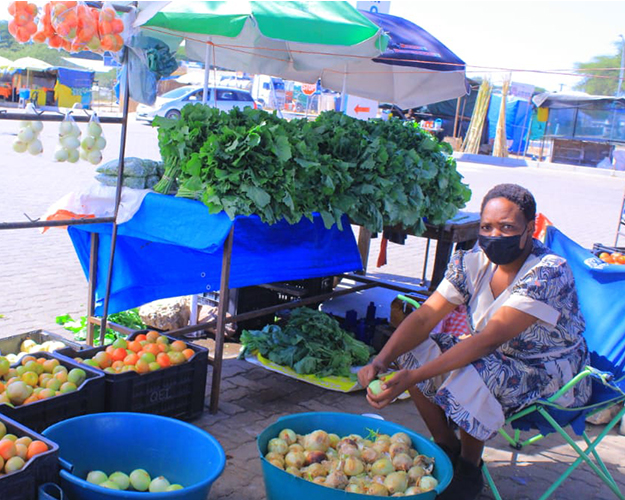UNCTAD equips 300 women small-scale traders in five countries with greater knowledge of trade rules, customs procedures and entrepreneurship skills.
© Wazzkii/Shutterstock
Pauline Satau, a small business owner from Kazungula village in northeastern Botswana, didn’t set out to be an informal cross-border trader.
Like approximately 70% of informal cross-border traders in the Southern African region, she ventured into business out of necessity and a desire to feed her family.
And for many years she did just that, growing her business from selling corn on the cobb to poultry farming.
In 2020, she expanded her business, conducting cross-border trade in neighbouring Zambia and the Democratic Republic of the Congo.
Then COVID-19 hit, forcing her out of business and triggering far-reaching and disproportionate consequences for low-income households and small businesses.
“The pandemic brought my hard work to an abrupt stop,” she said.
Supporting the recovery of African small businesses
Ms. Satau was among 300 small-scale traders who benefited from UNCTAD’s training programme on cross-border trade and entrepreneurship held in border towns of Botswana, Kenya, Malawi, Tanzania and Zambia between February 2021 and May 2022.
UNCTAD conducted nine six-day training sessions as part of a UN multi-agency project entitled “Global initiative towards post-COVID-19 resurgence of the micro, small and medium-sized enterprise (MSME) sector”.
The project was aimed at rebuilding livelihoods and mitigating the impacts of the pandemic.
“The training sharpened my business skills. I learned that I shouldn’t be stagnant, but make my business evolve,” Ms. Satau said.
The training programme entailed dissemination of traders' guides, content on COVID-19 control measures and sessions on strategies for making businesses more resilient.
It also included opportunities for engagement between traders and border officials to dispel long-standing mistrust between them.
“Without the training, I would have continued on the path of playing small in this industry,” said Kefilwe Mogaetsho, a participant from Botswana.
Pauline Satau, a cross-border trader from Botswana.
How the training sessions helped
At a sub-regional project workshop convened by UNCTAD in June 2022, participants heard the feedback reported by the trainees.
Over 90% of them said they had acquired the confidence to pass through official border posts because of their improved understanding of trade and customs rules.
And 96% of them said they were ready to adopt new business models.
“Now that I know the rules, I spend less time clearing my goods,” one trader said, adding: “I am no longer afraid of border officials.”
Some Tanzanian border customs officials said the number of women carrying small consignments through official border posts had increased steadily and cases of smuggling had reduced after the training.
UNCTAD shared with policymakers experiences and lessons learned from the training. This will help advance evidence-based policymaking that is informed by the challenges, priority needs and expectations of the small-scale traders.
Various UN entities, international and regional organizations, representatives of relevant ministries from the five beneficiary countries and cross-border traders’ associations took part in the workshop.
Call for more training
The participants called for more training and support from UNCTAD.
“More training will help reduce unemployment in Malawi, as our best investment is in women,” said Emily Rose Mandala of Malawi’s cross-border trade association.
“UNCTAD is ready to support countries to help more women overcome hurdles to trade and boost their resilience to crises,” said Simonetta Zarrilli, who leads the organization's programme on trade and gender.


